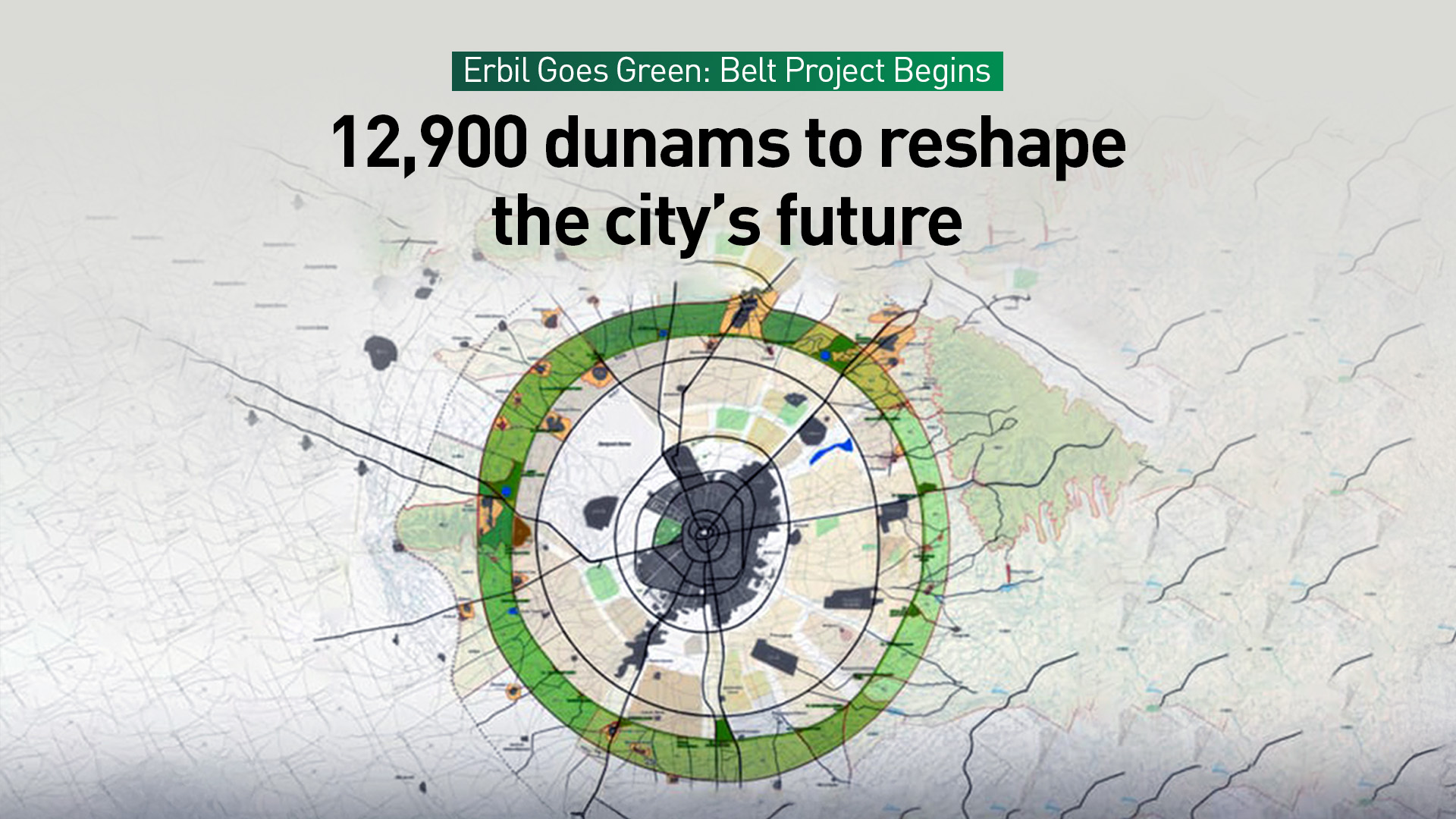Erbil Launches Massive Green Belt to Reshape City's Future
Erbil has begun implementing its massive Green Belt project, a long-term plan to plant thousands of dunams of trees to combat climate change, guide urban growth, and improve quality of life, with the first phase now underway.

ERBIL (Kurdistan24) – Erbil has officially launched the implementation phase of its long-awaited Green Belt project, a massive environmental and developmental initiative set to encircle the Kurdistan Region's capital with thousands of dunams of green space to combat climate change and guide urban growth for decades to come.
The first practical steps of the major project are now visible, with work crews installing iron poles and constructing a fence around the city's perimeter in preparation for planting a vast area with trees suitable for the region.
Karzan Hadi, Head of Erbil Municipality, announced on Monday that the first phase, covering an area of 12,900 dunams, has entered implementation and will be carried out by local companies. “We are now at the beginning of the project's implementation and no final completion date has been set,” he stated. Regarding the next steps, Hadi noted, “These are strategic projects, similar to the water and electricity projects, so further study will be conducted on it.”
In an interview with Kurdistan24, Hadi explained that while plans have been ready since 2010, the project was delayed by funding challenges. "Thanks to the support and recommendations of the Prime Minister of the Kurdistan Region, Masrour Barzani, the project was revived, and today it is becoming a reality on the ground," Hadi said. The first phase will begin in the area from Bahrka towards the Mosul road, covering an area of 2,800 dunams.
The head of Erbil Municipality described the project as a strategic vision for Erbil's future extending to 2050, stressing that it will raise the percentage of green areas in the city to exceed international standards. This, he noted, will have a positive impact on public health, air quality, and the overall quality of life for residents.
Addressing the legal and administrative complexities, Hadi explained that the allocated lands are owned by the Ministry of Finance. Some of these lands currently contain investment contracts or residential encroachments. To ensure a smooth process, he confirmed that financial compensation will be provided to citizens according to local laws to guarantee everyone's rights are protected and to facilitate the project's implementation without obstacles.
The selection of flora for the belt is being guided by a scientific approach.
The head of Erbil Municipality noted that tree species are being carefully chosen after conducting soil tests in various parts of the city. The project will focus on planting thousands of olive and pistachio trees, or other species well-suited to the region's soil. "We focused on planting olive trees for the job opportunities they provide to citizens, in addition to their environmental and economic impact," Hadi explained.
Increasing green space is a key indicator of urban development globally, helping to protect cities from desertification and pollution, lower ambient temperatures, and enhance biodiversity. For Erbil, which has experienced rapid population and urban growth in recent years, the Green Belt is designed to form a natural shield.
It aims to restore the environmental and urban balance of its surroundings, provide a natural recreational space, create thousands of jobs, and ensure a more sustainable future for generations to come.
Many countries have successfully resorted to building green belts around their major cities. In Beijing, China, the "Great Green Wall" project was launched to combat desertification and sandstorms. London established its Green Belt in 1955 to prevent urban sprawl and preserve surrounding nature. Frankfurt, Germany, has long maintained a belt of parks and forests that helps lower summer temperatures, while the Green Belt Movement in Nairobi, Kenya, led by Nobel laureate Wangari Maathai, focused on reforestation and environmental awareness. Similarly, Seoul, South Korea, has used its "Urban Green Belt" project to improve quality of life and reduce environmental pressures.
